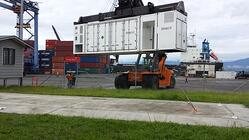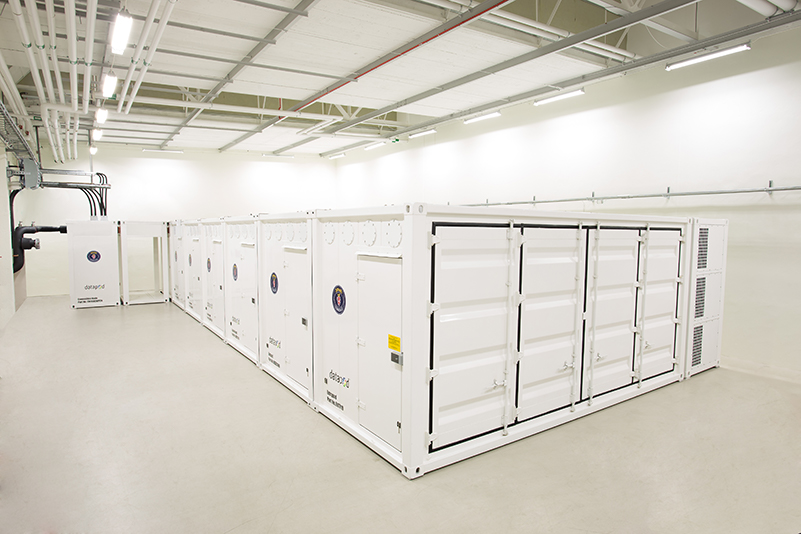Modular and containerized data centers are not new but there still can be confusion in the market place as to what is the difference is and what is the best solution.
Put simply both are good products depending on the customer’s needs.
Datapod’s award winning and innovative design means each data center solution is easily transportable and can be shipped and deployed to any populated location around the world.
Before we go further, it is important to note that although Datapod’s containerized and modular data center infrastructure may look like shipping containers, they in actual fact purpose built and engineered structures that have been designed to meet international shipping container dimensions.
Data Center Definitions: Containerized data center

A containerized data center is defined by industry research company, Markets and Markets, as a data center that comes in the form of a box or container in different size variants and contains all the basic functional data center modules including IT, data, power, cooling, and monitoring, assembled and integrated inside it. (Pictured right: A containerized data center deployed to a busy port in South East Asia).
Datapod offers a containerized data center or ‘in-a-box’ product and has been successfully deployed for a number of customers, who have either out grown their in-house data center room or who are looking to step up to a more efficient data center system.
In isolation the 10ft or 20ft containerized Datapod solution provides customers with a reliable a short to medium term data center solution, but unlike the modular data center product the containerized system is not scalable and offers customers less flexibility.
When purchased in volume the Datapod containerized data center solution can be deployed by any organisation requiring a ‘hub and spoke’ solution at strategic data nodes, such as a communications or campus network.
The features of a containerized data center include:
- Compact 10ft or 20ft system
- Fast deployment – 12-20 weeks from purchase order to deployment
- Easily transportable/relocatable
- Add value to ‘hub and spoke’ networks
- Low cost – When compared to customer data center builds
- Energy efficient – with more efficient cooling and energy consumption.
- The modular data center system
Modular data center infrastructure

A modular data center is a system which has separate modules for each component of the data center system.
Specific modules for power, IT and cooling are all interchangeable and can be added to an existing system without the need for downtime. (Pictured right: An indoor modular data center deployment).
Datapod’s modular data center components are also purpose built to 20ft ISO container dimensions and offer customers a complete turnkey solution that can be factory tested before deployment – providing the customer with peace of mind and assured reliability.
The Datapod modular data center system consists of standardized components, and has the following features:
- Cheaper and easier to build
- Quick and easy to deploy and integrate/retrofit to any other data center
- Compact awarding winning design
- Provides options for future flexibility
- Reduced deployment time
- Improved efficiency
- Reduced total cost of ownership
Datapod has successfully deployed both containerized and modular data center solutions for customers in a number of sectors including:
- Utilities
- Telecommunications
- Defense/Intelligence
- University/Research
- Government
- Ports
- Resources
Datapod Director Adam Smith said, “It is easy for customers to become overwhelmed between containerized and modular solutions. The important thing for customers to remember is that modular data center systems are like the Lego set that can be extended as future capacity increases. And it is this scalability and flexibility that really adds value to our customers – buy or lease what you need now, and grow it as your demands change’.
For more details on the benefits of a modular data center system or download the Datapod Components Guide.
